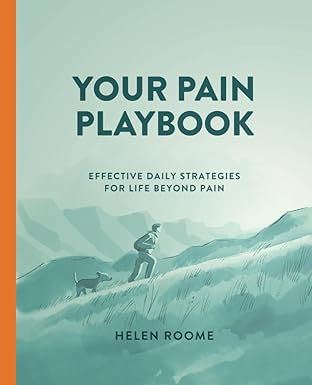Top tips for healthy ageing
- Mar 6, 2024
- 5 min read
In this article, I will share my 5 top tips for healthy ageing. These practical strategies will help you embrace your later years and live a vibrant and fulfilling life in the UK.
Key Takeaways
Stay active and exercise regularly to maintain good health.
Follow a balanced and nutritious diet for optimal well-being.
Prioritize your mental and emotional well-being to lead a fulfilling life.
Embrace social connections and stay engaged to prevent feelings of isolation.

Stay Active and Exercise Regularly
Regular physical activity is crucial for maintaining good health as you age. Engage in activities that you enjoy, such as walking, swimming, or cycling. Aim for at least 150 minutes of moderate-intensity aerobic exercise per week.
Staying active has numerous benefits for your physical and mental well-being. It improves cardiovascular health, strengthens muscles and bones, and helps manage weight. Exercise also boosts mood, reduces stress, and enhances cognitive function.
"Physical fitness is not only one of the most important keys to a healthy body, but it is also the basis of dynamic and creative intellectual activity." - John F. Kennedy
To make exercise a regular part of your routine:
Choose activities that you enjoy: Find an exercise that you genuinely look forward to. Whether it's dancing, gardening, or playing a sport, staying active becomes more enjoyable when you're engaged in activities you love.
Start slow and gradually increase intensity: If you're new to exercise or haven't been active for a while, start with gentle activities and gradually work your way up. Listen to your body and pace yourself.
Mix up your routine: Include a variety of exercises in your routine to work different muscles and prevent boredom. This can be as simple as alternating between walking and swimming or trying out new fitness classes.
Stay consistent: Aim for consistency rather than intensity. Even if you can't dedicate a large chunk of time, it's better to do shorter bouts of exercise throughout the day than none at all.
Stay motivated: Set realistic goals and track your progress. Celebrate your achievements and find a support system to help you stay motivated and accountable.
Exercise Type | Benefits |
Walking | Improves cardiovascular health, strengthens muscles, and promotes weight management. |
Swimming | Low-impact exercise that works the entire body, improves flexibility, and increases endurance. |
Cycling | Builds leg strength, supports joint health, and boosts cardiovascular fitness. |
Remember, staying active and incorporating regular exercise into your lifestyle is essential for healthy ageing. Start today and reap the benefits of an active and fulfilling life.
Follow a Balanced and Nutritious Diet
A healthy diet is essential for healthy ageing. It provides the necessary nutrients to support your body's functions and maintain optimal health. By following a balanced and nutritious diet, you can fuel your body with the right nutrients and reduce the risk of age-related conditions.
Eating a Variety of Foods
Include a wide range of fruits, vegetables, whole grains, lean protein, and healthy fats in your meals. Each food group provides specific nutrients that contribute to your overall health. Aim to incorporate different colors and textures to make your meals visually appealing and enjoyable.
Increasing Fruit and Vegetable Intake
Fruits and vegetables are packed with essential vitamins, minerals, and antioxidants that promote good health. Aim for at least five portions of fruits and vegetables every day. Include a variety of types to ensure you get a wide range of nutrients.
Choosing Whole Grains
Whole grains are a great source of fiber, vitamins, and minerals. Opt for whole wheat bread, brown rice, oats, and quinoa instead of refined grains. These whole grains offer more nutrients and help regulate blood sugar levels.
Emphasizing Lean Protein Sources
Include lean protein sources such as fish, poultry, beans, and legumes in your diet. These provide essential amino acids for muscle repair and growth. Limit red meat consumption and choose lean cuts when you do consume it.
Incorporating Healthy Fats
Include sources of healthy fats, such as avocados, nuts, seeds, and olive oil, in your diet. These fats are essential for brain health and help reduce inflammation in the body. Avoid or limit saturated and trans fats found in fried foods and processed snacks.
Avoiding Processed Foods and Sugary Drinks
Processed foods often contain high levels of unhealthy fats, sugar, and sodium. Limit your intake of processed snacks, sugary drinks, and pre-packaged meals. These foods provide empty calories without offering substantial nutritional benefits.
Reducing Salt Intake
Excessive salt intake can contribute to high blood pressure and other health issues. Limit the amount of salt you add to your meals and be mindful of the sodium content in packaged foods. Experiment with herbs, spices, and other flavorings to enhance the taste of your dishes without relying on excessive salt.
Remember, maintaining a balanced and nutritious diet is crucial for healthy ageing. It provides your body with the necessary nutrients to function optimally and support overall well-being. By making conscious food choices and prioritizing good nutrition, you can enhance your quality of life as you age.
Prioritize Mental and Emotional Well-being
Taking care of your mental and emotional health is equally important as maintaining your physical well-being. It is crucial to prioritize activities that promote a healthy mind and emotional balance. Here are some practical strategies to enhance your mental and emotional well-being:
Engage in stimulating activities: Participate in activities that stimulate your mind and keep it sharp. Solve puzzles, read books, engage in creative hobbies, or learn a new skill. These activities not only provide mental stimulation but also offer a sense of accomplishment and satisfaction.
Practice stress management techniques: Stress can have a significant impact on mental and emotional health. Find effective stress management techniques that work for you, such as deep breathing exercises, meditation, or yoga. These practices can help reduce stress levels and promote a sense of calm and relaxation.
Seek support when needed: It's important to remember that it's okay to ask for help when you need it. Reach out to friends, family members, or professionals if you're facing emotional difficulties or struggling with mental health issues. Seeking support can provide valuable guidance, perspective, and emotional comfort.
"Taking care of your mental and emotional well-being is just as important as taking care of your physical health. Engaging in stimulating activities, practicing stress management techniques, and seeking support when needed can contribute to a healthier and happier mind."
Embrace Social Connections and Stay Engaged
As we age, maintaining social connections becomes increasingly important for our overall well-being. Spending quality time with loved ones, joining community groups or clubs, and participating in social activities are all essential for healthy ageing.
Engaging in social interactions not only helps prevent feelings of isolation but also contributes to a sense of belonging and purpose. Whether it's sharing a cup of tea with a friend, attending local events, or volunteering in your community, these activities can make a significant difference in your mental and emotional well-being.
Being socially engaged stimulates our minds, promotes positive emotions, and helps reduce the risk of cognitive decline. Regular social interactions have also been linked to lower levels of stress and an improved overall quality of life as we age.
So, make an effort to nurture your social connections and stay engaged with others. Reach out to family and friends, explore new hobbies or interests, and participate in activities that bring you joy and fulfillment. By embracing social connections, you can create a supportive network of relationships that will contribute to a healthy and vibrant life in the UK.







Comments